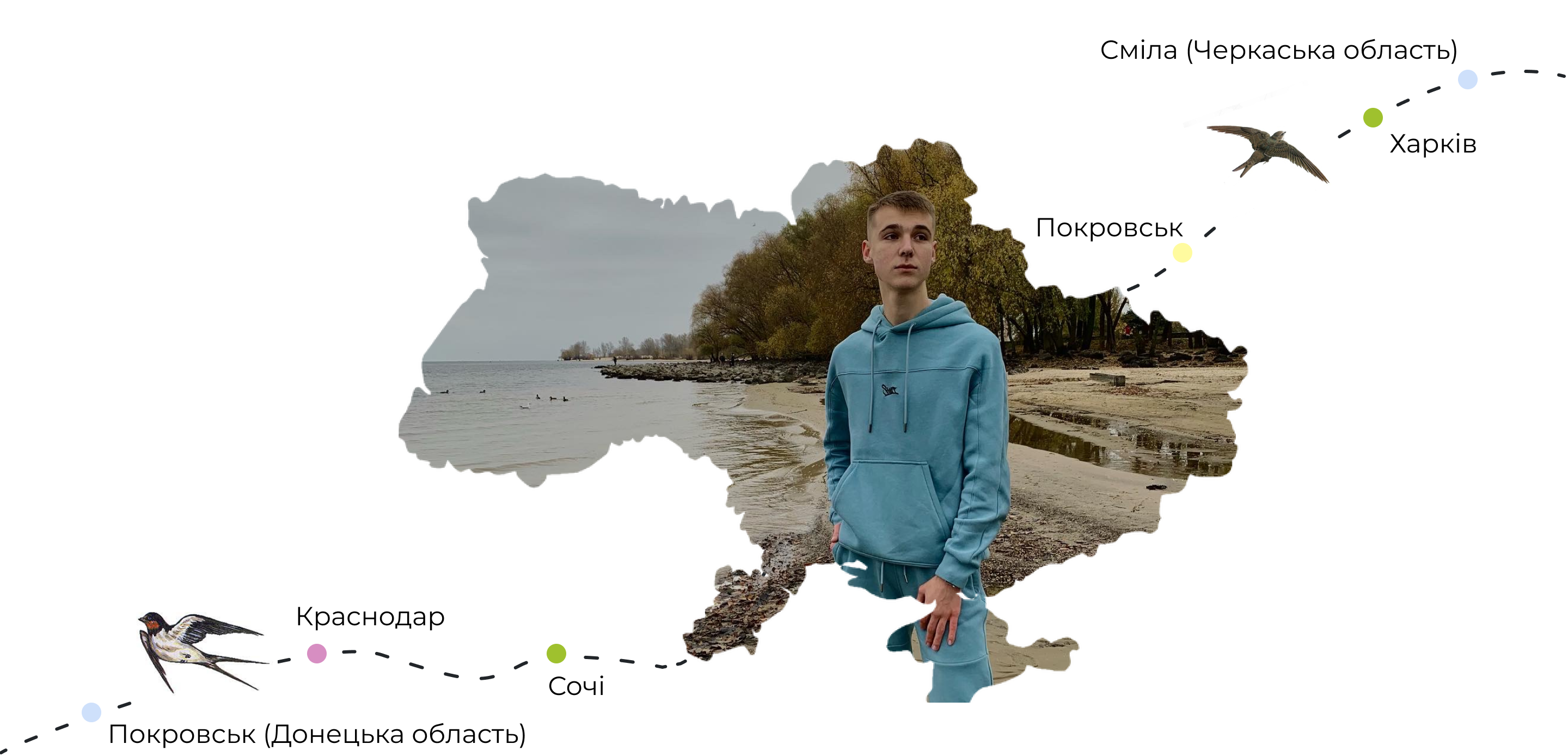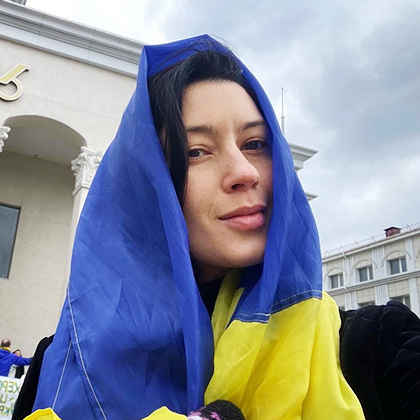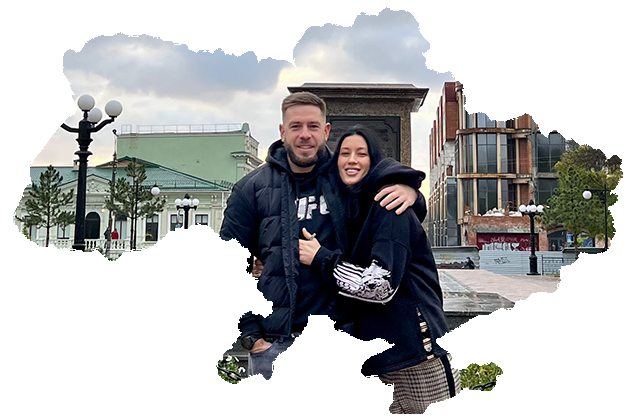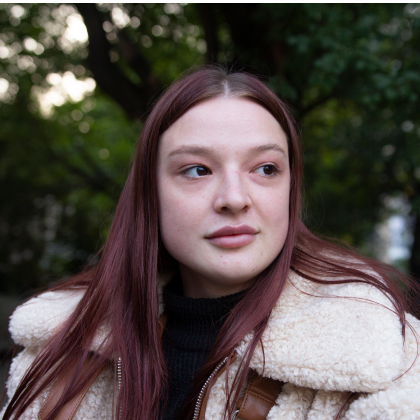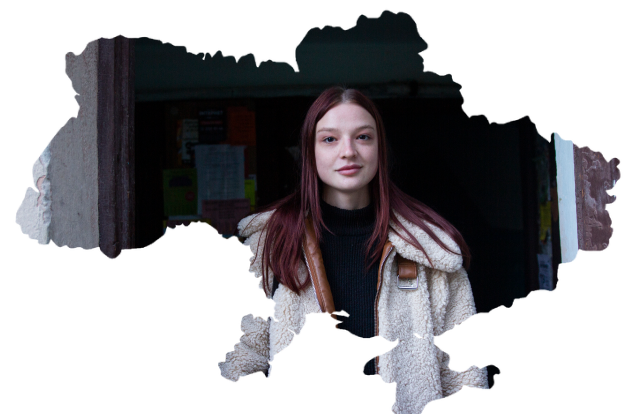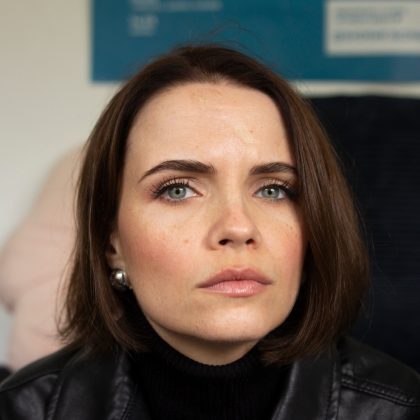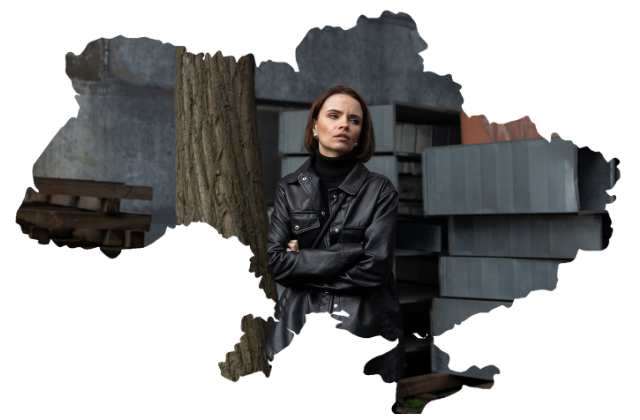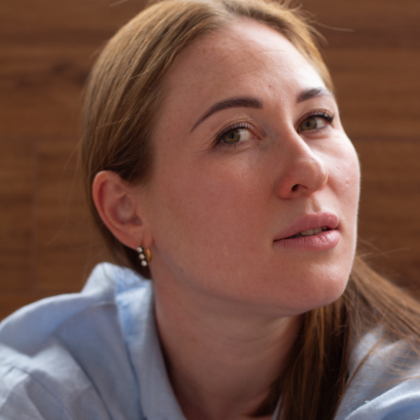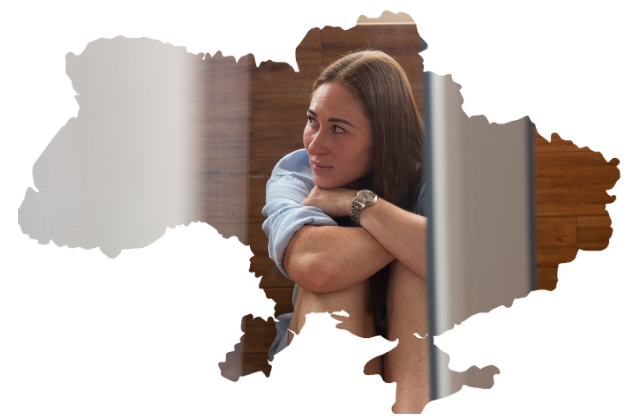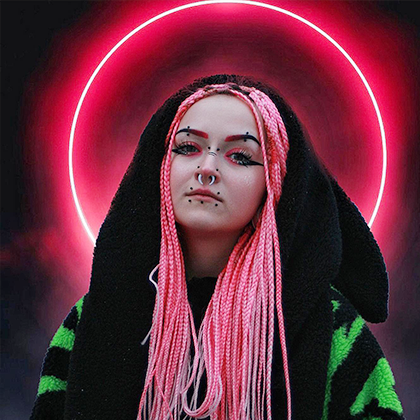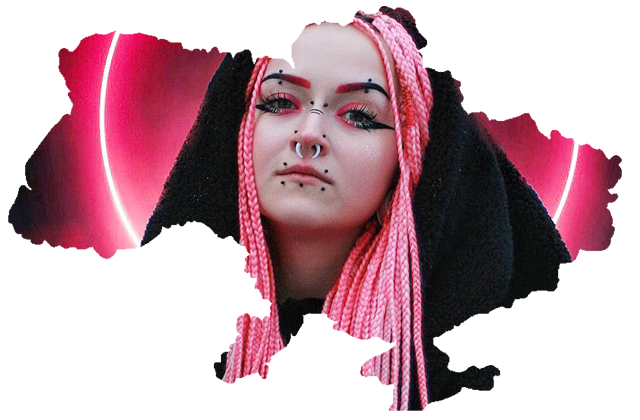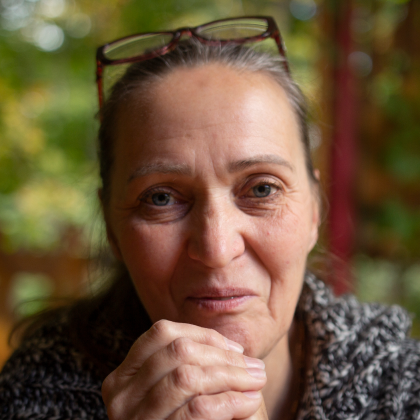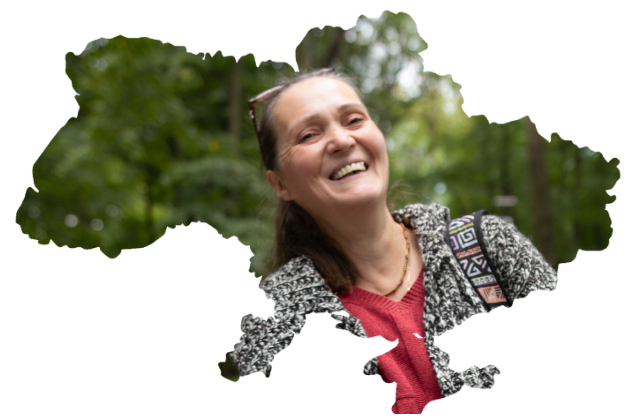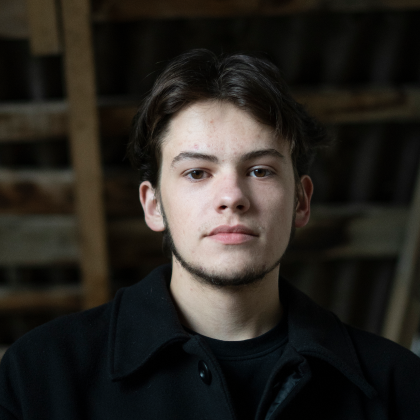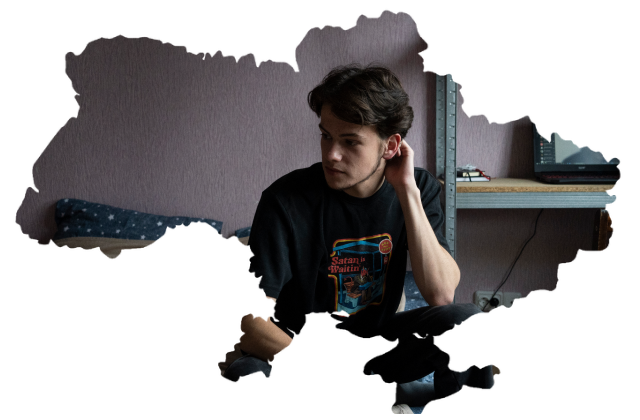Maksym Hrinchenko
Student at The Yaroslav Mudryi National Law University
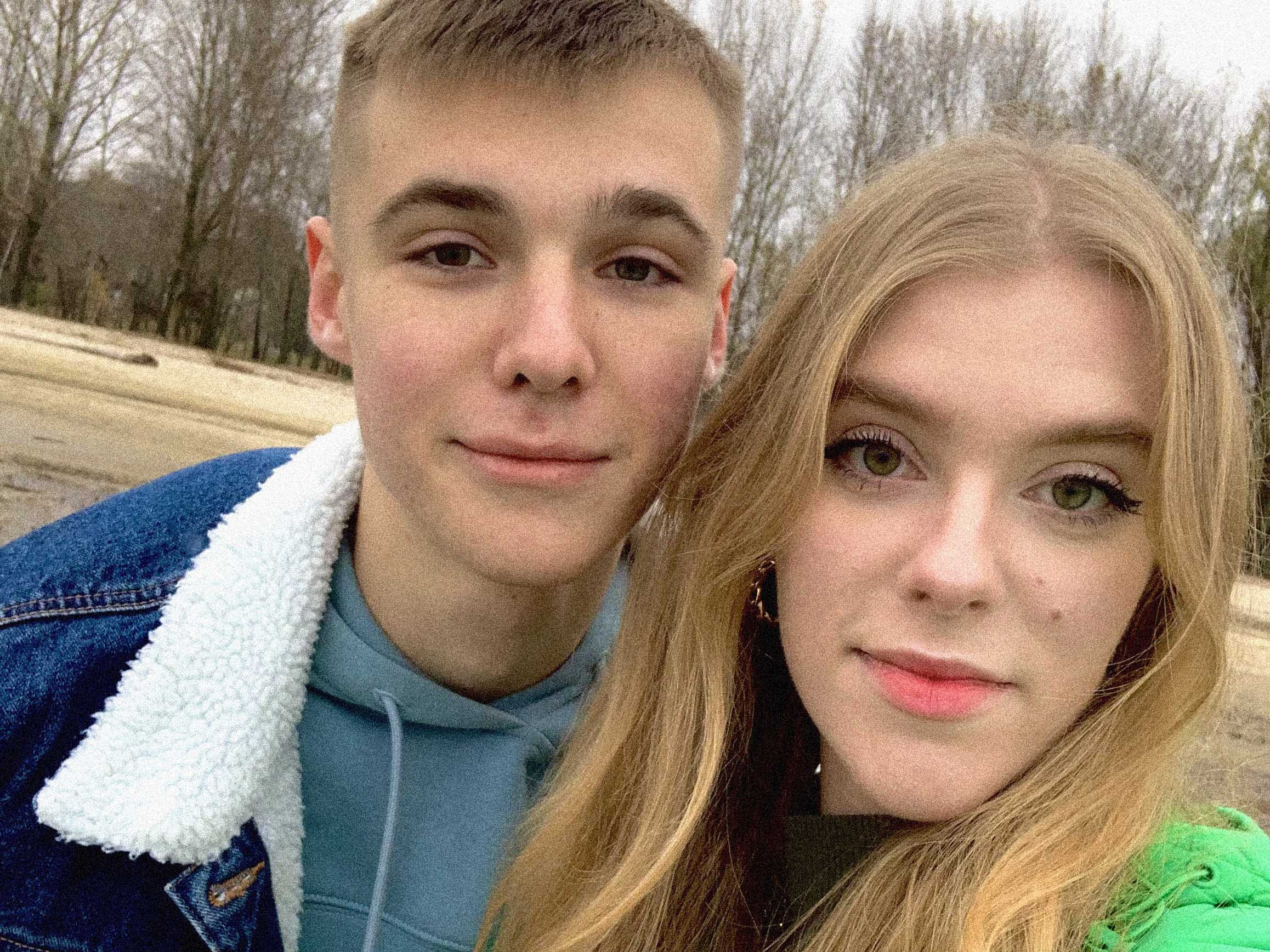
Pokrovsk (Donetsk region) — Krasnodar — Sochi — Pokrovsk — Kharkiv — Smela (Cherkasy region)
Pokrovsk is my birth town. I didn't like it too much when I was a kid, because it lacked the kind of entertainment a child needs. So, every weekend we used to go to Donetsk, which was about an hour away by car. I loved going to Donetsk, as there was the Forged Figures Park there, a very beautiful one, reminding me of Shevchenko Park in Kharkiv.
I remember the events of Maidan. I was nine back then, and I started watching the news. My parents said I was too young for it, but I was very curious about political life itself. A naïve child, I thought we were about to join the European Union. I loved watching travel shows and getting to know how people lived there, so I thought once we were in the EU, our lives would be just like that. I was horrified by the images of the Maidan shootings.
I was 10 when the war started. In the spring of 2014, strange people started appearing in my hometown and in the region. They started promoting the idea of independence from Kyiv. They said that there had been a military coup there and that we would face the same danger of being killed for speaking Russian.
The first incidents in Pokrovsk occurred at the end of April or the beginning of May. My building was near the district police station (the police were called militia back then). I could see people gathering there. They were brought in by buses and looked very scruffy, more like homeless people. Out of nowhere they got tyres, blocked the entrance to the police office with them, and set them on fire. They locked themselves in the building and there no one interfered with them in any way. What I remember clearly is that they had a banner of the so-called "DPR". These people wanted the police to take down the flag of Ukraine and hang that rag on their flagpole.
11 May was the day of the "referendum". No one knew what they were going to be voting for or what it was all about. A lot of local people watched Russian TV and got brainwashed, while the Ukrainian side didn't run any information campaign of its own as it does now. That was why a lot of people came to this "referendum". My parents didn't let me go see it, as they understood the danger.
At around 4 or 5 p.m., as the "referendum" was coming to an end, a convoy of PrivatBank collection vehicles drove into town. They simply walked into these administrative offices, seized them, captured the separatists, and disrupted the "vote". As it turned out later, it was Igor Kolomoisky's Dnepr-1 battalion.
The "Russian World" supporters acted quite aggressively and these events ended in bloodshed. One of them was shot in the leg and another got wounds incompatible with life. After the shooting started, the people dispersed. However, in Donetsk, Luhansk, and other cities closer to the Russian border, these "referenda" did happen. The conflict began to take on a military edge, and active hostilities began in Sloviansk. No one understood what to do or what was going to happen next. People were already terrified for their lives.
My mother was really worried about us. My relatives from the Russian Federation were hoping that this would all end in Russia's favour. Maybe my family gave in to those views. So in June, my mother decided that it was safer to send me, my younger sister, and our grandmother to our relatives' places in Krasnodar and Sochi till things got more stable. I had gone to see them every summer before. So I saw it as a regular trip to see my relatives and knew that I would be back soon.
We were received all right, but our relatives tried to impose their views on us. I could hardly stand up for mine because of the age difference, so I just kept silent. Being in that totally pro-Russian environment, I found it difficult to distinguish between the real world and what they were saying. And their news described the events very differently from what was actually happening. It was scary because every day they were saying that new Ukrainian cities were being occupied. I was in touch with my mother all the time and she asked me not to worry and said that everything was fine.
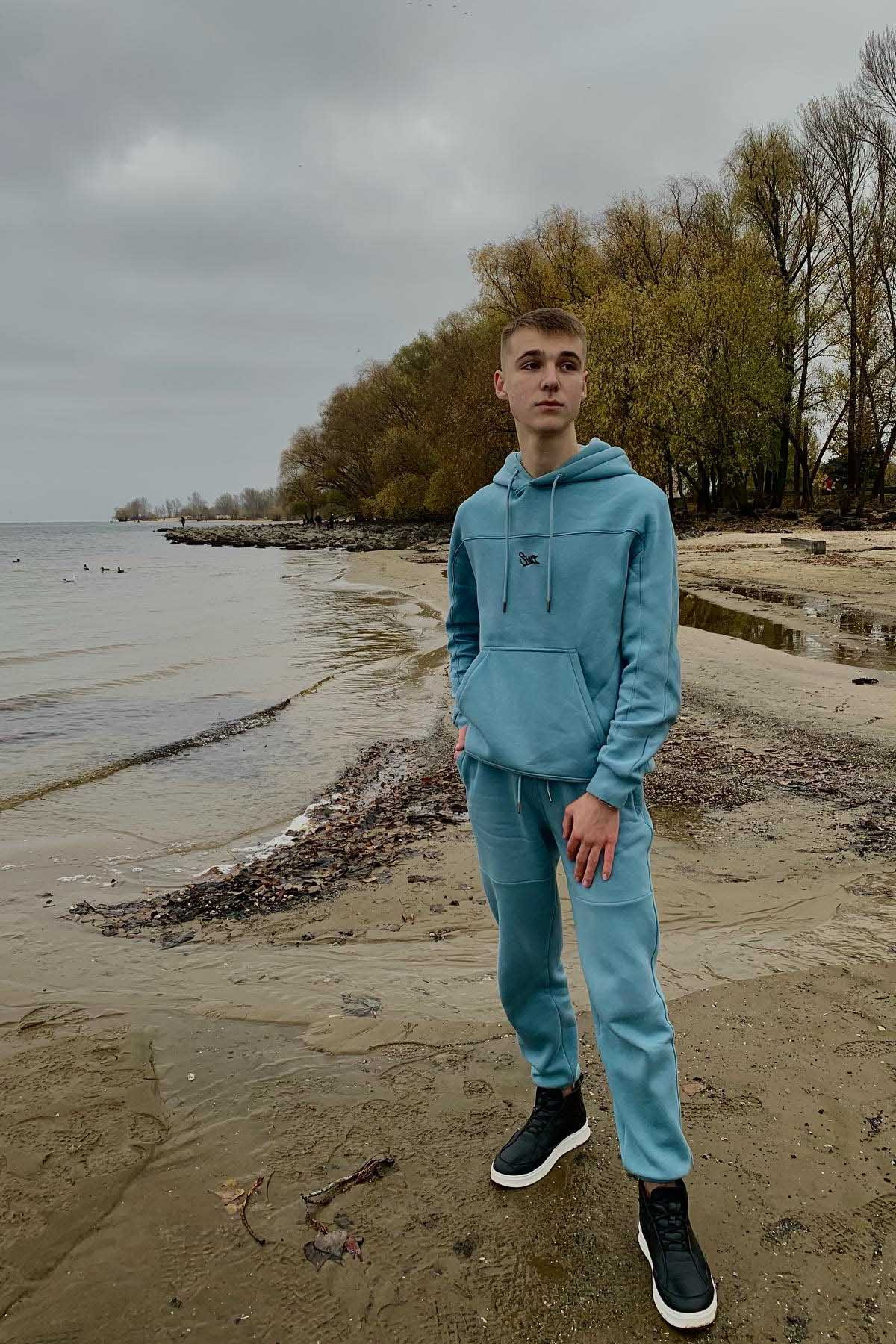
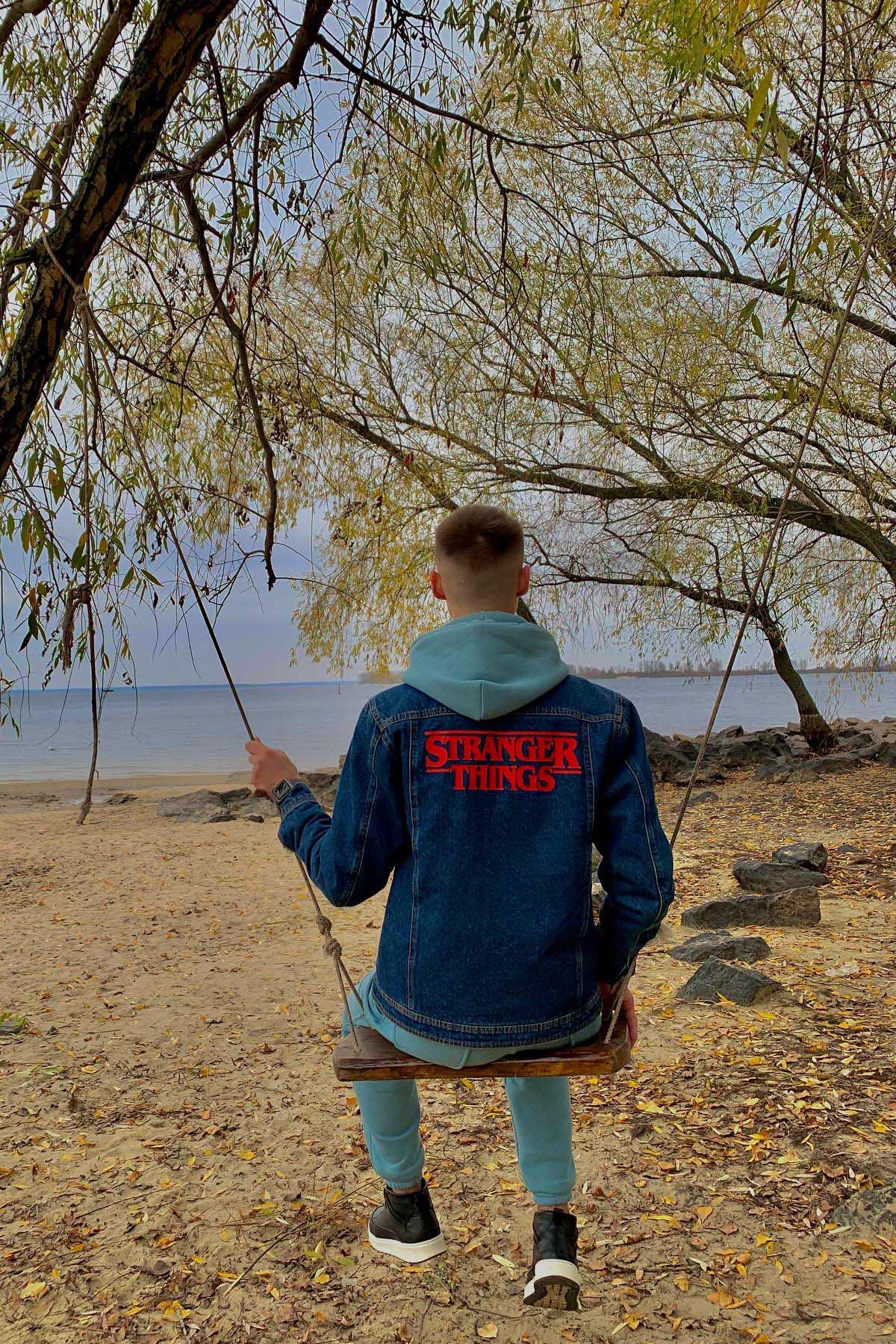
I stayed in Russia for 2.5 months, and in September I returned home, to an ordinary peaceful town under the flying flags of Ukraine. There was no hint of the events that took place in spring. I went to a new school. New people, new friends, new environment came along. The war didn't rank as my first interest, but I maintained my pro-Ukrainian position and grew stronger every year.
I made up my mind to go to law school quite late, in the 11th grade. At first, I hesitated between economics and law. But I didn't like mathematics, so I realised that if I chose economics, I would have to study higher mathematics. As I am no masochist, I chose the Faculty of Law, Prosecutors Training Institute. I passed my exams, moved into the students' residence, became the head of the group, and actively engaged in university life.
Before that, I had only been to Kharkiv once for a ballroom dancing competition. All my life I had thought it was a grey communist city, like cities in the Donetsk region. But when I moved to Kharkiv, I fell in love with it at first sight. I took walks in the city almost every day. A friend of mine has a tradition of walking 10,000 steps every day. I'm not a fan of walking, but she kept saying:" Let's go!" And I couldn't say no to her.
In October 2021, the quarantine started, so I went home, and then I came back a few times for a while. I didn't have a chance to live in Kharkiv for long, and this makes me sad.
I didn't expect a full-scale war to start. I thought it was all a PSYOP. But, unfortunately, I felt the smell of fried on 21 February, when the Russian president recognised the independence of the "L/DPR". I realised that the Georgian scenario was likely to happen. But I took it like: "OK, it happened, but if we are moderate enough in our actions, things won't escalate."
I had four practical classes and one lecture scheduled for February 24, so I spent quite a lot of time preparing for them on the 23rd. As always, my friend suggested: "Let's do our 10,000 steps!". But I said no on that day. I still had a fever, as I had just had flu. She said: "What if it's our last day in Kharkiv and we don't go for a walk?" And I was like, "Well if it's our last day, you can remind me of that tomorrow." She also brought me a thermometer and I broke it. And then I read that it was bad luck.
On the 24th, at about five in the morning, I heard a door slam loudly. I didn't want to wake up, because I realised that my roommate had forgotten his keys, had gone for a walk, and was back in the morning. Yet I got up, opened the door to him, and tried to go back to sleep again. But he ran into the room saying, "Wake up, war has started. Putin has attacked!". I thought he was joking and told him to go to hell, but he sounded so serious…
The first thing I did was pick up the phone and open Telegram. The entire feed was news. The window of my room overlooked the city centre, while from the corridor I could see Saltivka and the Industrialnyi district (the outskirts of Kharkiv), and also the Chuhuiv airfield somewhere far away. I walked out into the corridor and saw the glow as if there were fireworks everywhere. There was smoke too. The sun was already rising and I could clearly see that what I saw was shelling and bombing. I thought at first, "This can't be happening!". But after 30 seconds: "Well, looks like this was meant to be."
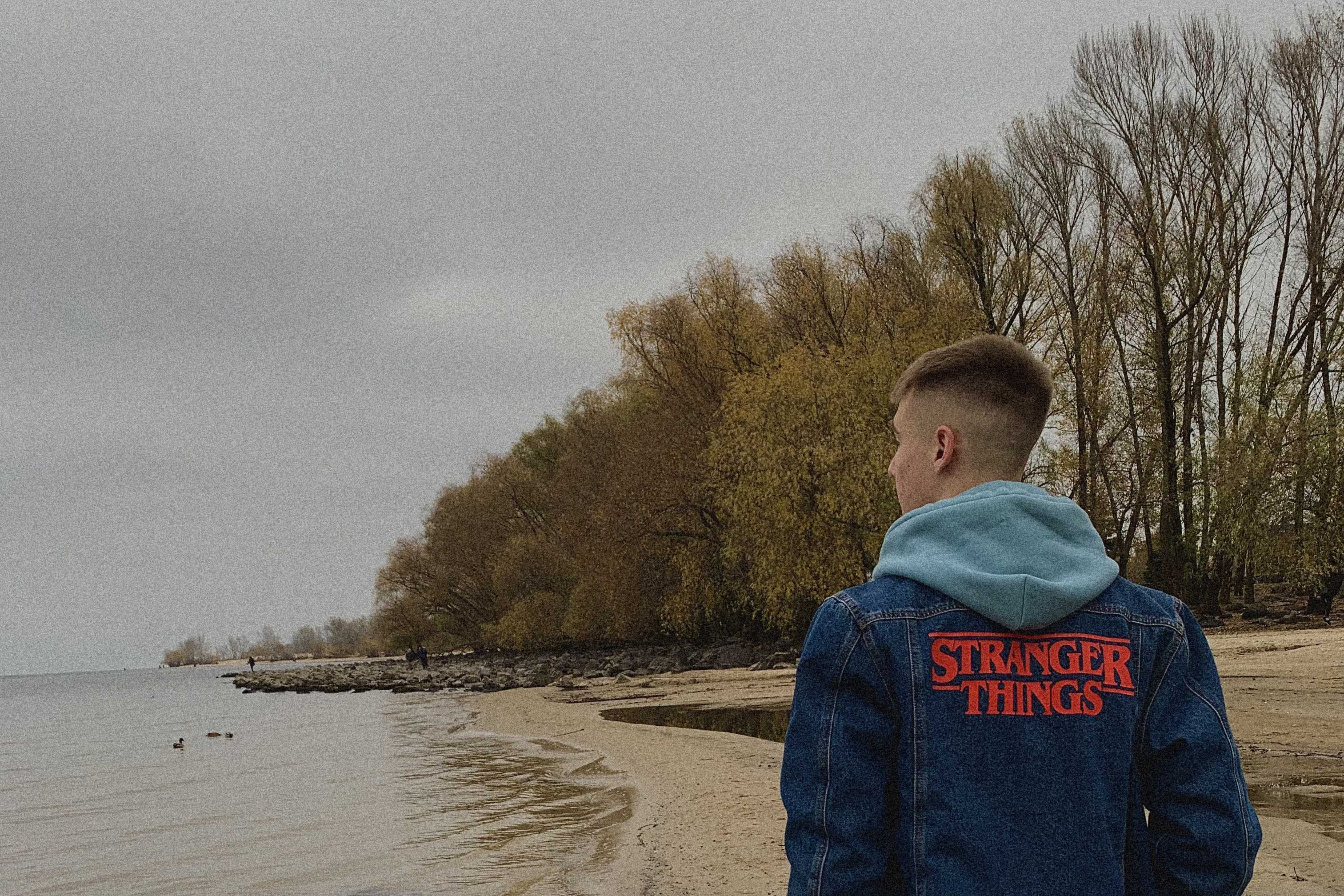
For some reason, at that moment I didn't think about how to save my life. What I thought of was the events of 1921, when the Bolsheviks entered the territory of the UPR. I recalled how back in 2014 the biggest victory for me was that Ukraine managed to preserve its statehood. Sure, some of its lands had been taken away, but I thought they would come back someday. But at that moment I had it in my head that Ukrainian statehood was in danger. One moment I had my whole life planned in advance, and the next moment everything I'd built in my head might be destroyed. Those were the thoughts I had while I packed my bags.
In the first hours, we had to figure out what to do. My friend and I decided that we would stay in Kharkiv.
Going to Pokrovsk was a dangerous idea already because I would be passing through Izyum and Sloviansk, and the Russian military could already be there. And I knew even then that the local population would be killed.
There are three residence halls on our campus. The one next door was built in 2009. Instead of a basement, it had a "minus-second floor" with regular rooms. And it was the best shelter you could think of. We laid our mattresses on the floor and a classmate who left gave me the keys to his room.
The very next day, my friend's father came to pick her up, but for some reason, I could not leave with them. The place I was in seemed the safest place to be. However, as we were carrying my friend's stuff to the driveway, the MLRS fire started: it was pretty loud, with rockets flying right above us and falling not far from our residence.
I was not afraid of shelling or missiles. What did scare me was the idea of the city being occupied. After all, what does one do in the occupation? There's a sign in gold letters on the residence building saying "Institute for Personnel Training for the Prosecution Service of Ukraine". I understood that if we were occupied we would have to somehow communicate with the invaders, although I didn't want to accept such a state of things at all. But on March 1st or 2nd, I saw our soldiers walking down the street. It made me happy since I realised that Kharkiv was not occupied yet.
The Russians were coming in from the Lesopark side. That was why there was fighting there, I could hear small arms and machine gun fire. Not far from our dormitory there were enemy Tigers, BMPs, and APCs. There were quite a lot of the enemy's sabotage groups in the residential area nearby. Once a sniper hit one of the rooms in our building with an incendiary balloon. The fire was put out rather quickly, yet the room had time to burn down completely in two minutes.
On day ten, March 5th, I realised that I had to leave. Every day there were fewer and fewer people left in the student residence. I was afraid that I would be the only one left. I decided that the safest way was to take the train, as the railway station hadn't been shelled. I didn't yet know where I would go from there. The main thing was to get out of the campus, out of the area of active hostilities.
A taxi to the railway station cost 2,000 hryvnias. I gathered a company, to make it cheaper. We drove along Pushkinska Street, along Sumska Street and I couldn't believe this was happening. Sumska Street simply doesn't exist, all the buildings, historical buildings that had survived the Second World War, are roofless…
About 1,000 people stood in line to leave the city at the railway station. At first, two girls I was in the taxi with and I wanted to take the Kharkiv-Lviv train. But it didn't work out. I didn't expect such a crowd; I didn't even have breakfast or take food and water with me. And then I hear, "We'll probably have to spend the night at the train station." I don't like crowds and my nervous system was about to snap. So I took the Kharkiv-Dnipro train just to get out of town.
Unfortunately, it was already curfew when I arrived in Dnipro, so I had to spend the night at the train station. All I had was two packets of instant oatmeal. There was a boiler with boiling water and cups. So I just emptied the two packets into a cup, poured hot water, and waited a bit for the oatmeal to soften. Then I drank it to get at least some energy.
The next morning, train after train was cancelled. I no longer knew what to do, but I needed to get to Smela, to my family. There was a funny situation. A Dnipro-Lviv train was announced, and the crowd surged into the carriages. But it was just an old commuter train. I said: "But this is just a commuter train to Piatykhatky!" So everybody got off. And then the conductor says: "Why did everyone get off? This is the train to Lviv!"
And then the whole crowd got on again, looking askance at me. We got to Piatykhatky (Dnipropetrovsk Oblast) and got off. My mom picked us up in her car, so we wouldn't have to take the suburban trains and made it to Smela before curfew. That's how I got to Smela.
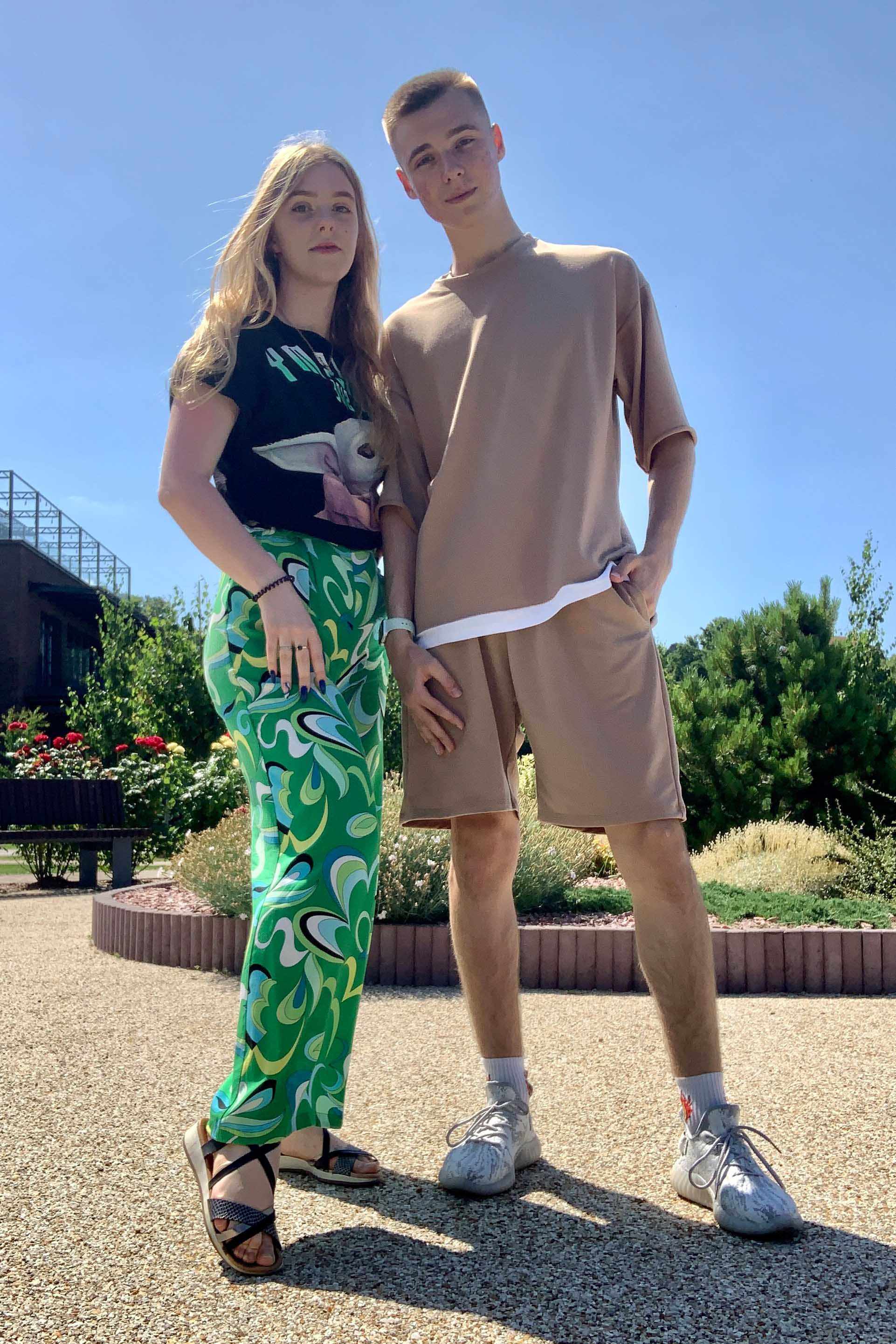
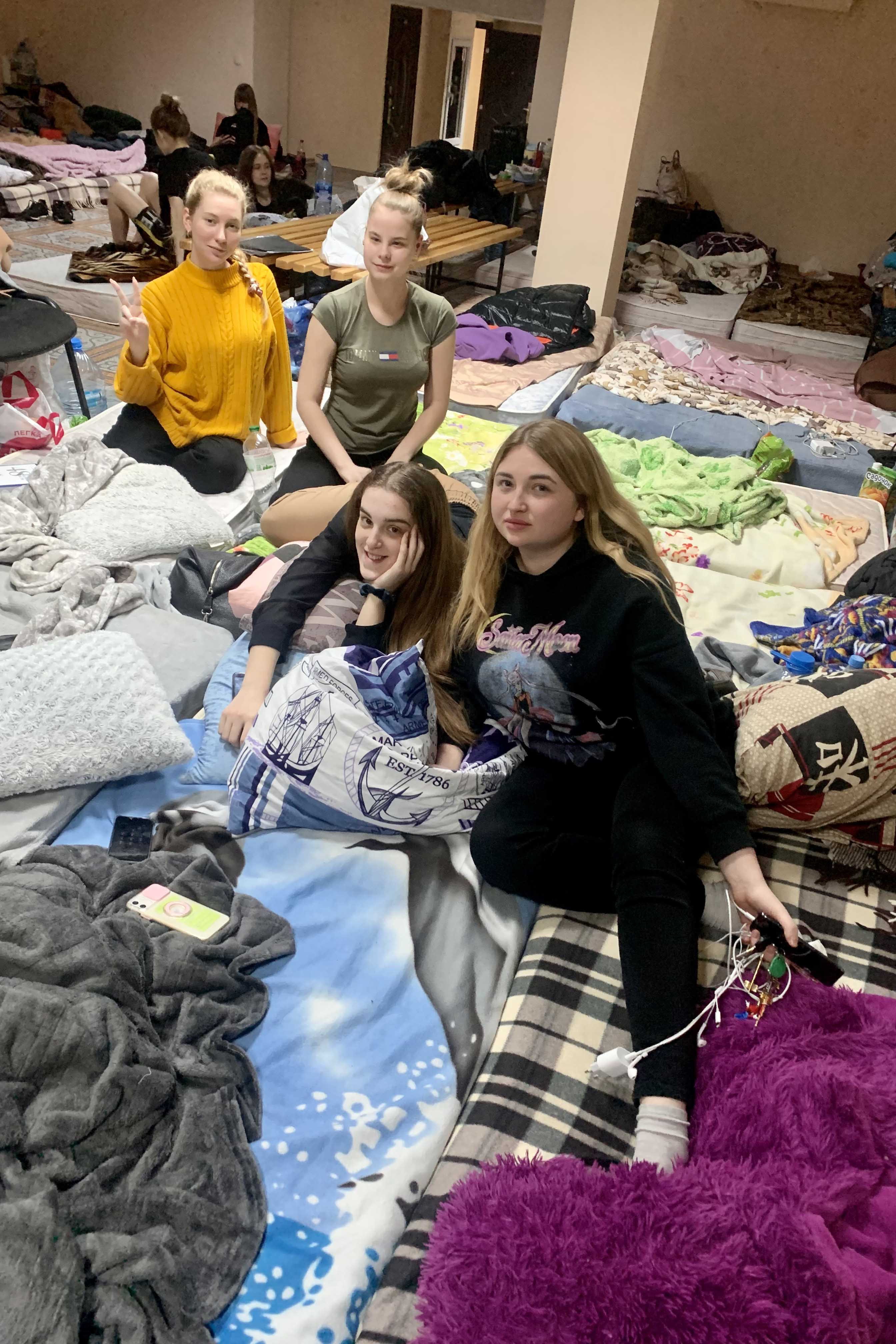
I lost a lot of weight and looked bad, as my mother told me. But I was happy. I had a very good meal at home because I had been eating whatever I had for two weeks. When I closed my eyes all my thoughts were about what I had experienced and about the explosions. I couldn't think about anything else. Did I calm down? I don't know, there was more of that big question mark: "What's next?" Is it already the end or is it just the beginning?"
I didn't really like Smela at first. I felt like I was forced to come there. I think I will associate this town with the war for the rest of my life. But, of course, the city is OK and very similar to my hometown of Pokrovsk. In the first days, it was such a joy for me to go out for coffee or to take a look at the park. The quietness and tranquility that dominated the city surprised me. There was that parallel no-war reality there.
I keep on studying and do some tutoring as well. I go for walks with my friend or friends, I know some people here too. I live a completely normal life. There have been no conflicts with the locals. They support us in everything.
There is a lot of help, both volunteer and humanitarian. Even ordinary people are willing to help.
There are many displaced people in the Cherkasy region. People from the Kherson and Mykolaiv regions, for example, tell terrible stories. They no longer have a home. It is certainly the worst thing that can happen. I have a place to go back to: both my student residence in Kharkiv, and my home in Pokrovsk, are fortunately fine. I don't know, maybe it's the name of the city that protects it…
Although Kharkiv is got more damaged by the war than Pokrovsk, the situations are quite similar. When I came to my hometown for a while at the end of August, I felt content to be at home.
What is home for me? Probably a place where you feel comfortable, where you feel completely safe, and where your soul can rest. I consider both Kharkiv and Pokrovsk as my home towns. I feel as comfortable in Kharkiv as I do in Pokrovsk, I feel like I've lived there all my life, even though I live in a student residence there. But I consider those four square metres, which under contract belong to me for four years, to be my home.
Naturally, I am going to come back to Kharkiv. I study there. I will need an order from the rector to resume my full-time studies. Still, I would really like to come back to Kharkiv as soon as possible.
Recorded by Dmytro Kuzubov
